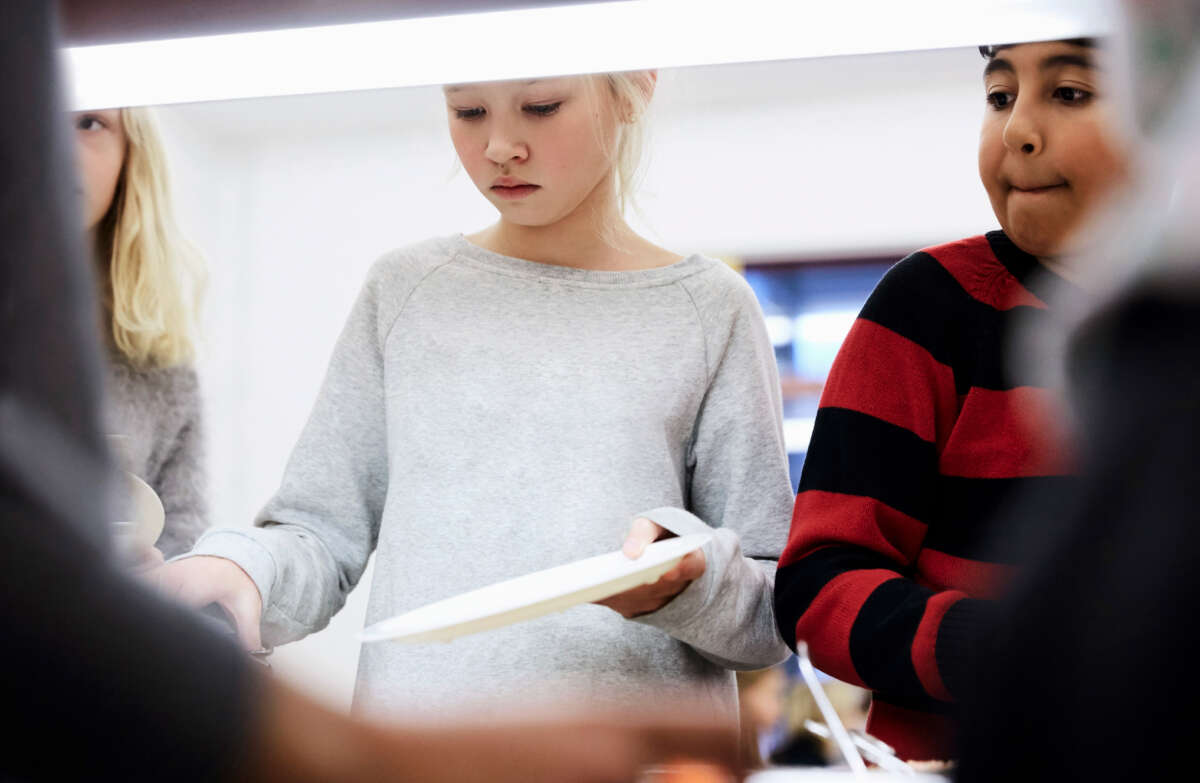Last week, Republicans in the North Dakota Senate killed a bill that would have expanded a program to provide children living close to the federal poverty line access to meals at school for free. The vote was met with outcry over its cruelty, as one Senate Republican asked, “Is [children going hungry] the problem of the state of North Dakota?”
This week, 13 of the Republicans who voted to kill the school meals bill voted to increase their own meal reimbursements by nearly 30 percent, as first reported by Inforum.
On Thursday, the state Senate voted 26 to 21 to pass a bill, SB 2124, aimed solely at expanding the meal allotment for state employees, including members of the legislature. If signed into law, lawmakers’ daily meal reimbursement would increase from $35 to $45 to cover three meals a day — an increase of about 29 percent. This would cost the state almost $1 million over the two year budget cycle.
The vote took place just 10 days after the chamber narrowly voted against expanding school lunches to cover children from families of four with an income at or below $60,000 — an income cap put in by Republicans after Democrats had originally proposed universal free school meals.
The latter vote garnered outrage online. During the debate on the school meal bill, Republican state Sen. Mike Wobbema claimed that providing free school meals would create too much of an entitlement culture, in remarks that were widely condemned on social media for their cruelty.
“We talk about personal responsibility as one of the major principles that the Republican Party stands on. Yes, I can understand kids going hungry, but is that really the problem of the school district? Is that the problem of the state of North Dakota?” Wobbema said. “It’s really the problem of parents being negligent of their kids, if their kids are choosing to eat in the first place, which is entirely the problem that could be existing here.”
In regards to the program, he asked, “where does it stop?” Just days later, Wobbema would be one of the Republicans who voted to increase his own meal funding.
The hypocrisy in Wobbema’s line of argument is glaringly evident. Free school meal programs are crucial to reducing food insecurity for children; often, school meals are the only meals a child can regularly access. North Dakota politicians haven’t raised the state’s minimum wage above the extremely low federal minimum wage, so it remains at a mere $7.25 an hour, or just above $15,000 a year for standard full time work.
Meanwhile, North Dakota legislators made at least $41,500 in 2019, including a more than $1,800 monthly housing allowance during the session, and they have since voted to raise their pay. Legislators also get a reimbursement of about 50 cents a mile to travel to work from across the state — and a $35, perhaps soon to be $45, daily meal allowance.
The votes are a show that Republicans are perhaps not so worried about “personal responsibility” when it comes to themselves. Republicans have been railing against free school meals in recent months, arguing that children don’t deserve to be fed at school because they don’t personally know someone going hungry or because hunger is a “relative term,” all while characterizing free meals as equivalent to socialism.
Underpinning these arguments is the ignorant and hateful idea that, as Wobbema referenced, people who are poor deserve to starve, experience homelessness, or otherwise suffer, because they are poor, and thus shouldn’t be given government support. But that same government support is perfectly fine in Republicans’ eyes when Republicans gift it upon themselves.
Join us in defending the truth before it’s too late
The future of independent journalism is uncertain, and the consequences of losing it are too grave to ignore. To ensure Truthout remains safe, strong, and free, we need to raise $27,000 in the next 24 hours. Every dollar raised goes directly toward the costs of producing news you can trust.
Please give what you can — because by supporting us with a tax-deductible donation, you’re not just preserving a source of news, you’re helping to safeguard what’s left of our democracy.
